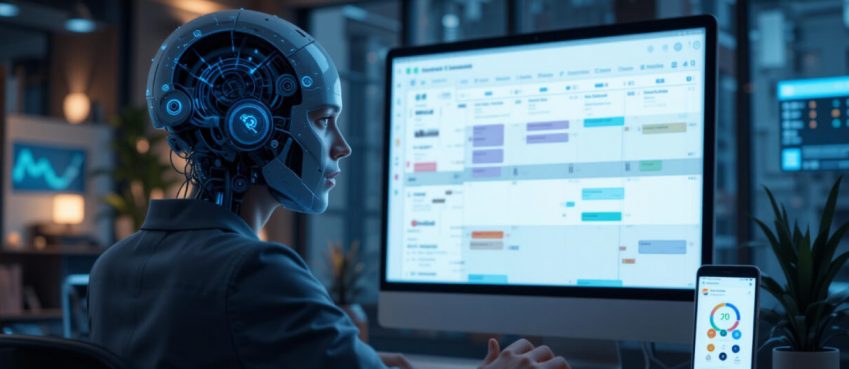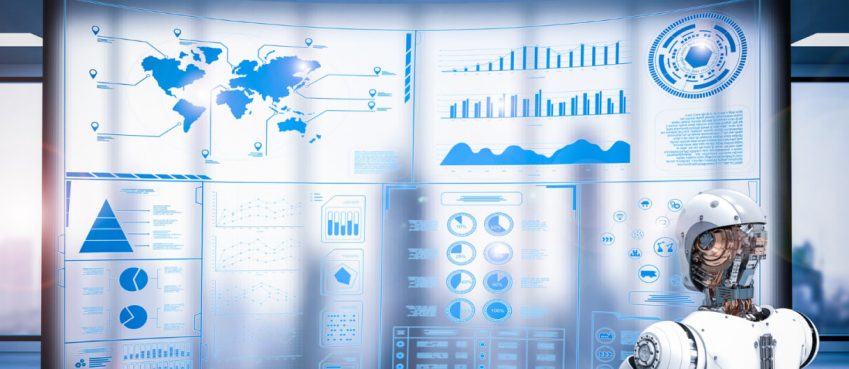
If fiction is to believe, we should be wary of artificial intelligence. Even the world’s biggest innovators believe that AI is a beast that we shouldn’t poke too much with a stick: Elon Musk calls the technology, “summoning the demon”.
With all the warnings, the terrifying video content from Boston Analytics and the warnings that robots could reach a new level of consciousness by 2025, it’s easy to forget why the world’s most progressive thinkers are working so hard to implement this technology in our every day. AI is helping to lead a number of breakthroughs in the environment, security and even healthcare. The advances being made by artificial intelligence, specifically machine learning, aren’t just shaping our futures but transforming the world as we know it today.
Dementia is one particular field that doctors have struggled to find a cure for. Given how little is known about the brain – and given that dementia is difficult even to diagnose in some patients, let alone treat – the disease is a scientific grey area in more ways than one. Thanks to artificial intelligence however, technology is helping to revolutionise the way that we fight this debilitating condition.
Diagnosis of dementia starts early: in fact, there are traceable changes made in the brain up to two decades before the noticeable signs of the disease become apparent. Science is helping to develop computer programs in order to notice these signs. Perhaps most impressively, AI has been known to detect Alzheimer’s from brain scans from an average of six years before a subject’s diagnosis confirming the condition.
Machine learning principally relies on data and statistical algorithms. Supposing that data scientists can ascertain huge datasets that contain the information of many sufferers of dementia, the algorithms can notice patterns and similarities between them. The idea with machine learning is that the AI learns for itself, producing results without being told to. in the case of diagnosis, machine learning can analyse differences between the physical structure of different brains in deeply detailed scans. The algorithms are capable of seeing chemical changes that can’t otherwise be spotted by doctors.
So if you can see the indications of such a horrific condition, surely you can predict the patterns of the suffers and eliminate future cases?
This is exactly where researchers want the technology to advance. Artificial intelligence could potentially help doctors to notice a common denominator across all Alzheimer’s or dementia sufferers. If it’s a particular trait or chemical, perhaps it can be corrected with a vaccine or surgery early.
Either way, there are plenty of ways that predicting how a brain could mature can aid a sufferer of dementia. Brain conditions might not always be treatable: despite all the progress that science is making in being able to spot the signs and eradicate diseases, it’s not certain that a definitive cure of Alzheimer’s or dementia could be found in the next few years. The care and preparation that goes into looking after those afflicted with the condition are key though; if doctors can at least notice when a subject is showing signs, then at the very least, a sudden and shocking diagnosis can be softened, like living arrangements, care packages and potential treatment can be planned.
Also read: – A Guide to Make Your Own Logos Through AI Based Logo Maker Tools
In addition to the advances that machine learning and artificial intelligence are making to doctor’s jobs, finding and assessing patients for dementia, it may well have a role to play in the care too. Caring for a loved one through such a difficult condition can take its toll on anyone; with robots and devices specifically designed to care for a sufferer of dementia, AI can enhance care and even help someone diagnosed to live at home for longer. It’s possible to fit out a home with sensors to monitor someone with dementia or Alzheimer’s; this can provide reaction and assistance from a carer in real-time. With sensors designed for the patient themselves, artificial intelligence can provide reminders and help to alleviate some of the difficulties presented to dementia sufferers associated with memory loss.
It’s not just Alzheimer’s, dementia and related brain conditions that machine learning can help to diagnose and treat. AI is a big tool for neurologists to explore, thanks to research in artificial neural networks (ANN) that act in a similar way to a biological brain, however AI is also being used in other medical fields.
Cancer is still one of the most lethal diseases worldwide and one that claims the lives of millions every year. With millions being pumped into looking for cures and treatments, there is a lot of research and investment currently in artificial intelligence. In a similar way to dementia, huge datasets of patients can be analysed to diagnose the signs of cancer even sooner and provide immediate attention. Equally, the treatment offered to patients is improving thanks to machine learning too.
Artificial intelligence is of course, something that we should approach with caution. But whilst AI can have us question our own humanity, it may end up helping us to connect with it in ways deeper than we ever expected. Throughout human history, technology has helped to save lives and progress medical science: why should AI be any different? The future is bright when it comes to looking for a cure for dementia. In a few years’ time, as the technology evolves, perhaps it will open doors to find more treatments for other diseases too.
Top 10 News
-
01
Top 10 Deep Learning Multimodal Models & Their Uses
Tuesday August 12, 2025
-
02
10 Google AI Mode Facts That Every SEOs Should Know (And Wha...
Friday July 4, 2025
-
03
Top 10 visionOS 26 Features & Announcement (With Video)
Thursday June 12, 2025
-
04
Top 10 Veo 3 AI Video Generators in 2025 (Compared & Te...
Tuesday June 10, 2025
-
05
Top 10 AI GPUs That Can Increase Work Productivity By 30% (W...
Wednesday May 28, 2025
-
06
[10 BEST] AI Influencer Generator Apps Trending Right Now
Monday March 17, 2025
-
07
The 10 Best Companies Providing Electric Fencing For Busines...
Tuesday March 11, 2025
-
08
Top 10 Social Security Fairness Act Benefits In 2025
Wednesday March 5, 2025
-
09
Top 10 AI Infrastructure Companies In The World
Tuesday February 11, 2025
-
10
What Are Top 10 Blood Thinners To Minimize Heart Disease?
Wednesday January 22, 2025







